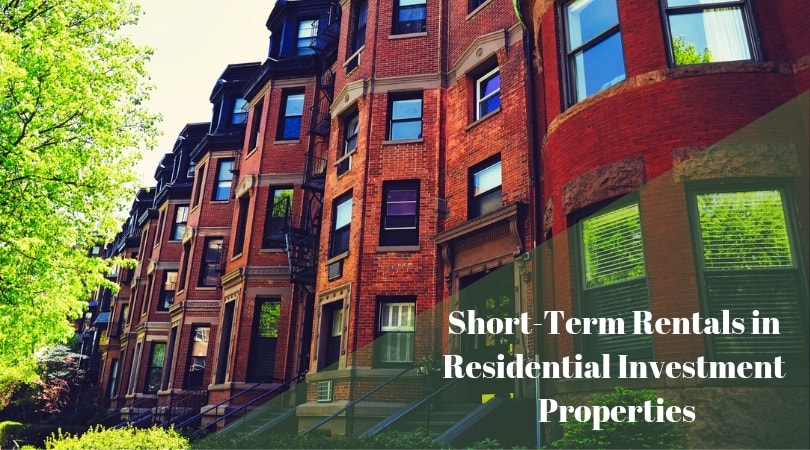Most homeowners have grand projects in mind for their homes; from shiny new bathrooms to additional finished space, there are many ways to turn an average house into your dream one. However, when the time inevitably comes to sell, many are disappointed when they find out that the costly projects they completed added little to no value to their property. When it comes to investing your hard-earned money into your house, it’s always a good idea to keep in mind which home improvements are the most likely to help when it comes time to sell.
Since not all home updates are created equal, we collected renovation projects that have the most attractive return on investment and are most likely to improve your resale value.
First Impression Is Priceless
When describing their dream home, a good number of homeowners tend to focus on the inside: granite countertops and stainless appliances in the kitchen, bedrooms on the same floor, lots of light, and so on. It seems logical to adopt their approach since you will spend most of your time at home indoors. However, when it comes to resale value, the importance of curb appeal takes on a new dimension. Usually, potential buyers drive by the properties they are interested in before deciding to visit it or not. House hunters immediately eliminate houses with a neglected exterior from their short-list.
Therefore, it’s not surprising to see that some of the home improvement projects with the highest return on investment (ROI) focus on the curb appeal of the property. Every year, Remodeling produces a study comparing the average cost of 22 remodeling projects with the value those projects retain at resale in 136 U.S. markets, taking into account the price range and the geographic location of the property. According to the 2019 report, you can recoup 97.5% of your money by upgrading your garage door. Updating the outside of your house by adding manufactured stone veneer elements will also help with the resale of your home, and you could regain nearly 95% of your renovation costs. Replacing your entry door with a steel model is also a good investment: you could recover almost 75% of your investment when selling the house. Although not accounted for in the report, regular yard maintenance—such as a recently mowed lawn, some flowers, and freshly-spread mulch—goes a long way to add curb appeal to your house at a minimal cost.
A lot of buyers put outdoor entertainment spaces high up on their wish lists. Hence, it is no surprise that you can recoup 75.6% of the cost of a wood deck, at resale. In comparison, composite decks and backyard patios, which serve the same function but are more expensive to build, have a cost-to-value ratio of 69.1% and 55.2% respectively.
Less Is More: A Sensible Rule for Home Improvement Projects
When starting a major renovation project (for example, remodeling a kitchen or a bathroom), many homeowners are tempted to go all-in and achieve their ‘Pinterest-fueled’ dreams of high-end finishes. However, if you plan to sell your house in the next couple of years and want to get the most bang for your bucks, you are better off sticking with smaller upgrades rather than a significant remodeling.
Kitchens and bathrooms are often selling points for homebuyers. To achieve a modern appearance that will make your house stand out without breaking the bank, you should consider some or all of the following for your home: a fresh coat of paint, new energy-efficient appliances, updated hardware, and midrange countertops. Minor kitchen remodels can help you recover over 80% of your investment compared to a major kitchen remodel, which has a cost-to-value ratio of 62.1%.
Also worth mentioning is how deferred maintenance may scare off buyers who are worried about the potential cost of significant repairs, including roof and siding. Besides, some of these maintenance issues can also harm an owner’s chance of benefitting from certain types of government-backed financing: VA, FHA, etc. Staying on top of house repairs may not be as glamorous as marble countertops, but it is a good use of your money. New windows have a cost-to-value ratio of 73.4% to 70.8%—depending on whether they are vinyl or wood—and you can recoup 75.6% of the price on vinyl siding replacement. Due to the overall cost of the project, replacing a metal roof has a cost-to-value ratio of 60.9%. Since metal roofs have a life expectancy of 50 years or longer, it may not be the best use of your money if you are planning on selling your property. On the other hand, you can salvage, at resale, close to 70% of the cost of an asphalt shingle roof replacement.
Home Improvement Projects You Should Avoid
It is possible to get carried away when renovating a house. As a result, many homeowners are surprised to find out that projects they thought would be an excellent investment are of little interest to likely homebuyers. When considering resale value, a good rule of thumb is to compare your property to the ones in the same neighborhood.
The worst home improvement projects for resale are the ones that make the house appear too fancy relative to the rest of your target market. If you over-improve your house by adding elements that are out of the price range of potential buyers—marble countertops in a midrange home, for example—you’ll be hard pressed to find a buyer willing to pay more money for something that is not a priority for him or her. Conversely, if all the other houses in your neighborhood have an element that your home is missing (e.g., an extra bathroom or bedroom), prospective homebuyers may choose a different property instead. High-end projects and extensive remodels tend to have a lower cost-to-value ratio than their lower-end, smaller-scale counterparts since these posh projects are more expensive. For instance, the cost-to-value ratio of a major kitchen remodel is 62.1%, while a minor one is 80.5%.
Another mistake you could make as a homeowner who intends to sell their house in the next couple of years is to spend too much money ‘personalizing’ your house. If a feature only appeals to a limited market, your chances of recouping the expenses of your home improvements are low. For example, the cost-to-value ratio of a universal design bathroom remodel (accessible to people with a handicap) is 62.5%. Another extravagant and impractical investment are swimming pools: they are expensive to build and maintain—although some may feel like they cannot live without one, it is a hassles and liability for others.
Improve Your House or Not? A Simple Guide
The bottom line of any home improvement project when it comes to resale is that you will rarely redeem 100% of your outlay. Some factors are entirely out of your hands, like the overall market trend: as the market slows down, so does the ROI of any home renovation.
A good rule of thumb when deciding whether to enhance your house is to consider how long you are planning to reside there. If you intend to inhabit it for many years and improving it will help you live better and stay longer, then you should proceed without necessarily prioritizing how much of your money you will get back during resale. Nevertheless, if you are considering selling your house within the next couple of years, you are better off keeping repairs to a minimum.
If you need to sell your house as quickly as possible and are not interested in expending more money on it, it is worth exploring selling it ‘as-is’ to a local investment company for a quick and hassle-free closing.
When buying a house, what are the improvements at the top of your wish list? What are the ones that will make you reconsider purchasing a property?








